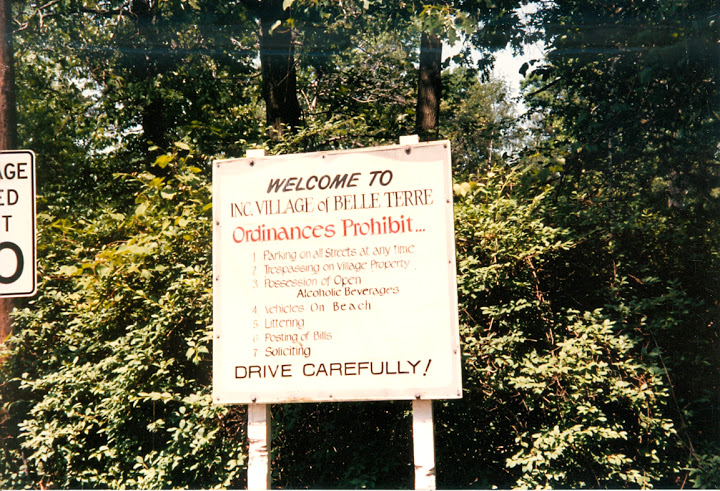In preparation for my article on the rational basis test after Windsor, I reread USDA v. Moreno, one of the so-called rational-basis plus cases where the Court invalidated a law under the rational basis test where no suspect class or fundamental right was present.
In 1973, by Justice Brennan, the Court decided Moreno, which, in a nutshell, held that the USDA could not pass a law that was clearly aimed at excluding hippies from the food stamp program.
In 1974, by Justice Douglas, the Court decided Village of Belle Terre v. Boraas, where the Court upheld a law that was clearly aimed at excluding hippie college students from living together in a nice neighborhood of Long Island.
As as 2003 Boston University Law Review article by Rebecca Ginzburg notes, zoning was just another means to push back agains the hippie communes sprouting up:
By the beginning of the communal movement of the 1960s, zoning was an established practice in the United States.34 In fact, opponents of communes and other communal living arrangements began to use zoning to their advantage in their effort to keep “hippies” out of their neighborhoods. Zoning became a particularly powerful tool against communal living in urban and suburban areas,35 where single-family dwelling zoning is most common. To keep out what neighbors conceived, sometimes correctly, as havens for drug use, free love, and anti-government sentiment, a municipality could simply zone an area for single-family homes or enforce an already existing ordinance more strictly.36
Rebecca M. Ginzburg, Altering “Family”: Another Look at the Supreme Court’s Narrow Protection of Families in Belle Terre, 83 B.U. L. Rev. 875, 880 (2003)
So what gives? Hippies can’t be denied food stamps, bu can be denied the right to live together? Or, as a 1989 New Mexico Law Review article put it:
After Belle Terre it seems clear that even though “hippies” cannot be denied food stamps on the basis of their living arrangements if they are otherwise qualified, they can be zoned out of the neighborhood.Katheryn D. Katz, More Equal Than Others: The Burger Court and the Newly Arrived State Resident, 19 N.M. L. Rev. 329, 352 (1989)
Justice Douglas makes a feeble attempt to distinguish Moreno in a footnote, but it is hardly persuasive. I found a few contemporary law review articles, which also suggest that the distinction is not valid.
I realize I am diving into cases that are forty years old, and are not really relevant, but I can’t help but think that the difference was due, in part, the Court’s longstanding aversion to property rights stemming from Euclid and Berman v. Parker. Did you know that Court’s two most significant property rights opinion of the second half of the 20th century, Berman and Belle Terre, were both authored by Justice Douglas. The opinions are laughers, and basically read the 5th Amendment out of the Constitution.
Really cool aside, but Moreno was argued by a young A. Ray Randolph. This seems to be the only case he argued while in the Bork SG office. Alas, Randolph doesn’t use the word hippie, but Rehnquist does. He was a latter-day Eric Cartman at 32:02:
Justice William H. Rehnquist: But isn’t one of your arguments that the legislative motive here invalidates the thing because they were out to get the hippies communes?
